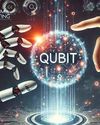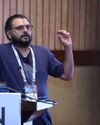
Frederick Noronha caught up with Jurgen Gaeremyn, member of the Digital Freedom Foundation (the charity behind Software Freedom Day), to ask some pertinent questions about the history of the event, and its evolution over the years.
Jurgen Gaeremyn, member of the Digital Freedom Foundation, wrote in to say: “In June of this year, I offered to help launch Software Freedom Day (SFD) globally. I found your name when searching through the first years of Software Freedom Day, and your account was the oldest one (apart from the founders) I could find in my list. Back in 2005, you were writing for BytesForAll.”
Jurgen says that the SFD team and its supporters in different pockets of the globe are celebrating the 20th edition of Software Freedom Day this year. “Thanks for being one of the very first supporters of SFD, and two decades later still standing for open source software, open data and open culture!”
Seizing the opportunity, I sent across some queries. Here is an excerpt of the exchange.
FN: How has SFD grown or changed over the years (since I last knew it)?
JG: Actually, SFD started back in the time when every self-respecting computer magazine offered a CD with some freebies on it. Back then Matt Oquist decided that burning a CD with actual free software (contrary to the freebies or trial versions on those other CDs) could add much value. He teamed up with Henrik Omma and Phil Harper and they decided to promote this OpenCD project all over the world. Things moved quickly from there.
Diese Geschichte stammt aus der October 2023-Ausgabe von Open Source For You.
Starten Sie Ihre 7-tägige kostenlose Testversion von Magzter GOLD, um auf Tausende kuratierte Premium-Storys sowie über 8.000 Zeitschriften und Zeitungen zuzugreifen.
Bereits Abonnent ? Anmelden
Diese Geschichte stammt aus der October 2023-Ausgabe von Open Source For You.
Starten Sie Ihre 7-tägige kostenlose Testversion von Magzter GOLD, um auf Tausende kuratierte Premium-Storys sowie über 8.000 Zeitschriften und Zeitungen zuzugreifen.
Bereits Abonnent? Anmelden

Quantum Computing: Harnessing Open Source for Innovation and Accessibility
We explore how open source initiatives are shaping the future of quantum computing, making it more accessible and driving innovation through collaboration.

How Quantum Computing Differs from Classical Computing
Despite being in its infancy, quantum computing has numerous potential applications in modelling, cybersecurity, AI/ML, and other fields. But how do quantum and classical computing compare with each other? Let's find out...

From Bits to Qubits: The Growth Story of Quantum Computing
Quantum computing may still be in the early stages of evolution, but its potential impact on everyday life is significant. We delve into the key concepts behind it, the reasons for its rapid growth, and how global advancements are shaping its future.

Pytket: A Comprehensive Guide to Quantum Circuit Design
Pytket stands out as a powerful toolkit in the realm of quantum computing, offering a suite of features that cater to both researchers and industry practitioners. Its key strengths include optimisation, platform-agnostic support, flexible quantum circuit design and hybrid algorithm support. These features make Pytket a versatile tool for various quantum computing applications, from machine learning and cryptography to optimisation problems in industrial settings.

Cirq: The Open Source Framework for Programming Quantum Computers
Explore the key features, capabilities, and impact of Cirq, an open source quantum computing framework developed by Google, on the quantum programming landscape.

The Role of Open Source in Accelerating Quantum AI
Here's an overview of how open source frameworks are being utilised to build quantum machine learning models, including quantum neural networks and quantum kernel methods. The challenges and future directions in the quantum AI landscape are also discussed.

Quantum Machine Learning: An Overview
Quantum machine learning (QML) is a burgeoning field at the intersection of quantum computing and artificial intelligence. In recent years, the integration of quantum mechanics with machine learning algorithms has sparked substantial interest among researchers and technologists alike. Here's a quick look at the essentials of creating quantum algorithms for AI models, their practical use cases on open source platforms, and best practices for implementing these advanced algorithms.

Blockchain: Transforming Automotive Traceability, Payments, Sustainability
From advanced battery passports to carbon credits and fortified payments, blockchain is reshaping EV data handling and connectivity.

"Developers are wasting their time with Kubernetes alone!"
At Open Source India 2024, Ram Iyengar, Chief Evangelist, Cloud Foundry Foundation, raised a few eyebrows with his cogent arguments about ways to manage and deploy infrastructure. OSFY's Yashasvini Razdan got some exclusive takes on alternatives for scalable application deployment and management, and the role of Cloud Foundry Foundation in this business....

Helgrind: Detecting Synchronisation Issues in Multithreaded Programs
Let's explore how Helgrind can be used to detect and debug multithreading issues with the help of a multithreaded C program.